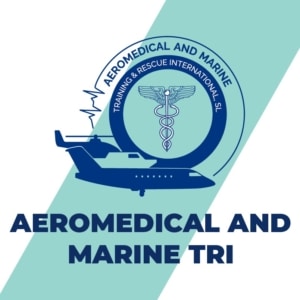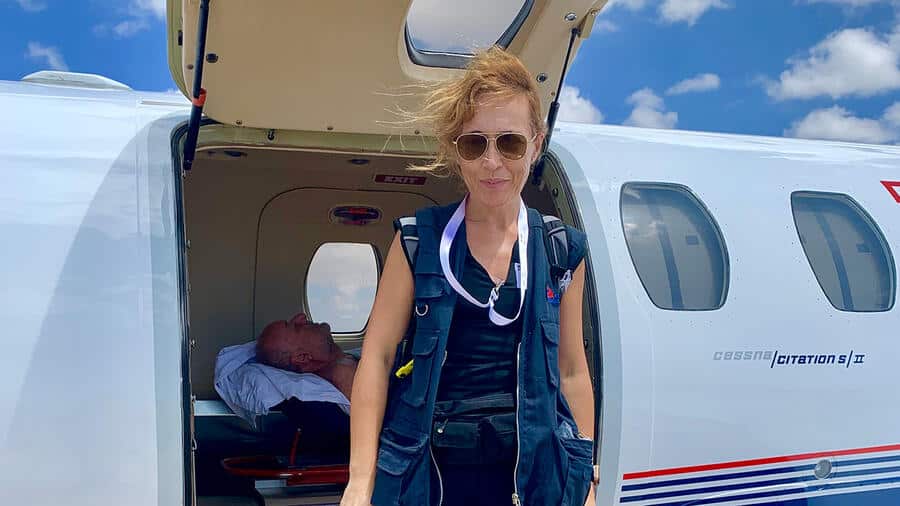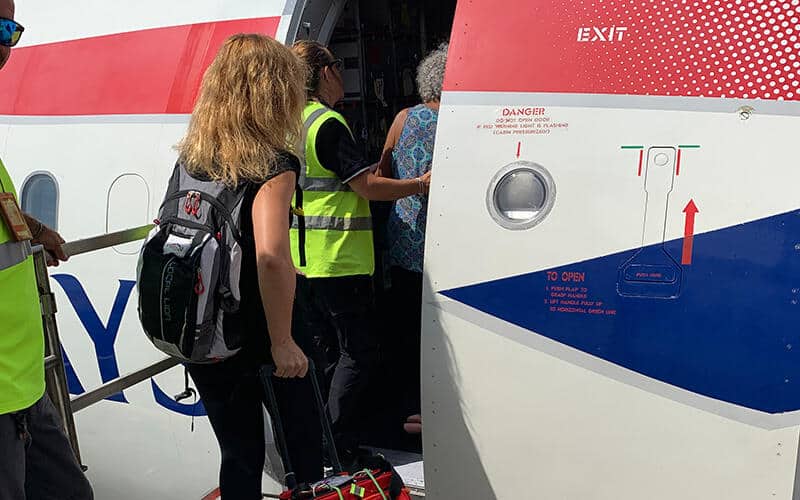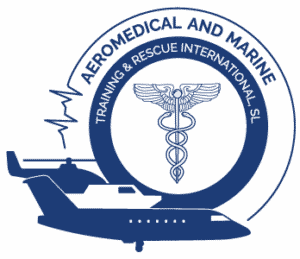AEROMEDICAL & MARINE
TRAINING & RESCUE INTERNATIONAL
Provider profile: Aeromedical &
Dr Monica Fortea shared details of how her experiences in medicine and treating trauma victims led to her creating a company dedicated to ensuring the safe repatriation of seafarers and travellers
Dr Fortea’s passion for managing victims of trauma has resulted in her working for Spanish primary helicopter emergency medical services (HEMS) and as a flight doctor for long distance fixed-wing air ambulance and commercial airliner patient transport missions in the past two decades. She also has extensive experience in the coordination, management, and case handling of patient transfers, retrievals, and repatriations, whilst advising several significant health insurers and medical assistance organisations. Her enthusiasm for helping people around the world, to move them safely and efficiently to a better level of medical care, or to bring them safely home, forms part of Dr Fortea’s holistic approach to the care of her patients and the most important reason of creating her own company: Aeromedical & Marine Training & Rescue International.
Dr Fortea is also the director of an organisation that cares for the wellbeing of seafarers who are injured or ill while sailing in African or European seas many miles from home.
In addition, she is a lecturer and instructor for HEMS and fixed-wing air medical services in Spain, national and international teaching, and she somehow still has the energy to teach and transmit her knowledge and vast experience to new generations of aeromedical doctors and nurses.
She spoke to AirMed&Rescue to answer some key questions about the
company’s activities.
What are the company’s key services?
Aeromedical & Marine´s key services are to give any medical support for air, sea or ground patients transfers, organizing quotations and medical staff for international private clients or international insurance companies.
What aircraft do you operate, and where are they based?
Aeromedical and Marine works with several air ambulance companies within and outside Spain:
PHS Aviation (based in Portugal and Barcelona, Spain)
Eliance aviation (Canary Islands and Seville, Spain)
247 Aviation (Belfast, UK).
What proportion of your missions are HEMS, and what proportion are fixed-wing?
In the past, HEMS was my main activity – around 80 per cent HEMS to 20 per cent fixed-wing. From 2015 onwards, fixed-wing air ambulance missions have become my primary work activity.
Do you also perform medical escort missions onboard commercial aircraft?
Yes, I have an extensive experience of commercial plane medical repatriations along the world, and we employ an amazing HEMS and fixed-wing air ambulance (FWAA) professional, trained for these missions as well.
Do you cater to every kind of patient – e.g., critical care, pediatric, bariatric?
Yes, we choose the best medical team for each mission, depending on the patient.
How are you adapting your services to the increase in tourists that is happening already, and will continue to happen over the summer?
Aeromedical & Marine is always on standby, ready to go wherever is needed.
Communication and understanding between all parties is essential to a smooth repatriation mission
What is your background in medicine and travel assistance?
I am a consultant orthopedic and trauma surgeon and have been for more than 20 years. I completed my medical degree at the Autonomous University of Barcelona (UAB) and a research biomedical degree from Leiden University in the Netherlands. I speak eight languages and am also the Medical Director of the International Department at Corachan clinic, Barcelona. I specialized in HEMS, EMS, HICAMS and FWAA aeromedical transport medicine at Alicante University. I provide commercial plane medical repatriations training and am an instructor for different HEMS and fixed-wing air ambulance courses.
Do you still work in hospitals and does this help to keep your critical care skills sharp? How does working in a hospital complement your aeromedical skills?
Yes, I’m working at the hospital three days a week, as a consultant and working in surgery and emergency care. The rest of the week is dedicated to Aeromedical and Marine Training & Rescue International, being an insurance medical adviser and 24/7 aviation medical case management.
How do you think medical assistance companies and hospitals can work more effectively together to ensure communication is better and that repatriations run smoothly?
During my professional career, I have seen cases from all sides – I understand perfectly the work at the hospital, but also that of the insurance medical team and as a flight physician. Communication and understanding between all parties is essential to a smooth repatriation mission.
Medical staff at Aeromedical & Marine Training & Rescue International have been trained to be ready to respond to the call for help when it comes in
What value do you think accreditation of aeromedical services holds for medical assistance partners?
I believe that accreditation is essential to demonstrate the quality of our services to our partners and payers.
Training for medical repatriation specialists is a very niche topic, do you think there are enough training opportunities for medical professionals who would like to get into this industry?
Training in repatriation is very necessary, and this industry needs to be aware of the lack of good courses available for staff. However, our medical staff at Aeromedical & Marine Training & Rescue International have been trained to be ready to respond to the call for help when it comes in.
HEMS/SAR
31 Aug 2022
https://www.airmedandrescue.com/latest/long-read/provider-profile-aeromedical-marine-training-rescue-international










